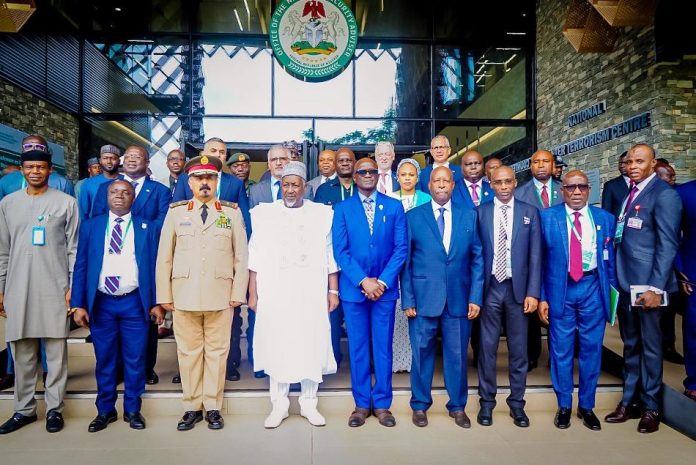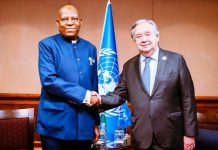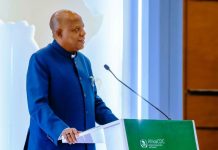Nigeria has reaffirmed its commitment to the fight against terrorism in West Africa and the Sahel, as the Honourable Minister of Defence, Mohammed Badaru Abubakar, CON, mni, addressed the opening of the Regional Conference on Combating Emerging Terrorist Groups and Strengthening Sustainable Security at the National Counterterrorism Centre today, Wednesday, 03 September 2025.
Speaking as the Special Guest of Honour to senior officials, diplomats, and security experts at the National Counterterrorism Centre in Abuja, the Minister warned that “terrorism, insurgency and insecurity are existential challenges that endanger our people, our economies, and our shared future.”
Mohammed Badaru Abubakar placed Nigeria’s assurances at the centre of the discussion, aligning them with President Bola Ahmed Tinubu’s Renewed Hope Agenda, which prioritises peace as the cornerstone of prosperity.
The Minister further set three priorities. First, integrating intelligence across the region through real-time fusion and technology to track and disrupt terror networks. Second, the institutionalisation of joint military operations, with renewed push for the full operationalisation of the ECOWAS Standby Force and harmonized legal frameworks that leave no safe havens for extremists; Third, tackling the root causes of radicalization by investing in education, youth empowerment, community resilience and accountable governance. “Security must strengthen legitimacy, not weaken it,” he said.
He added that Nigeria has positioned itself within the wider geopolitical space, making clear that regional security requires a balance of African resolve and international solidarity. The Armed Forces of Nigeria have dismantled multiple terrorists/criminal strongholds, prompting thousands of surrenders. Operation Safe Corridor is advancing rehabilitation and reintegration to reduce the cycle of violence and help communities heal. Nigeria supports the Multinational Joint Task Force in the Lake Chad Basin. Nigeria also upholds the Yaoundé Code of Conduct to secure land and maritime domains.
Badaru Abubakar explained that these initiatives demonstrate how military strength, diplomacy, and community-based solutions can complement one another and serve as models for the ECOWAS region.
He also thanked the United Nations, African Union, European Union, and other international partners for their continuous support, which strengthened regional capacity. Yet he urged the partners to invest in intelligence fusion platforms, provide technical support for the ECOWAS Standby Force, and fund socio-economic programmes that block extremist recruitment pipelines. “African resolve must be matched by sustained international partnership,” he noted.
Closing his address, Abubakar called for the conference to move beyond declarations and deliver a practical roadmap that deepens cooperation and secures the future of West Africa. “This conference must not end with words. It must deliver an actionable roadmap that strengthens partnerships, deepens collaboration and secures a future of peace, stability and shared prosperity,” he stressed. Nigeria’s message is clear: the region’s security is indivisible, the threats are urgent, and the time for united and well-supported action is now.
Signed
Mati Ali.
PA Media & Publicity to the Hon. Minister






